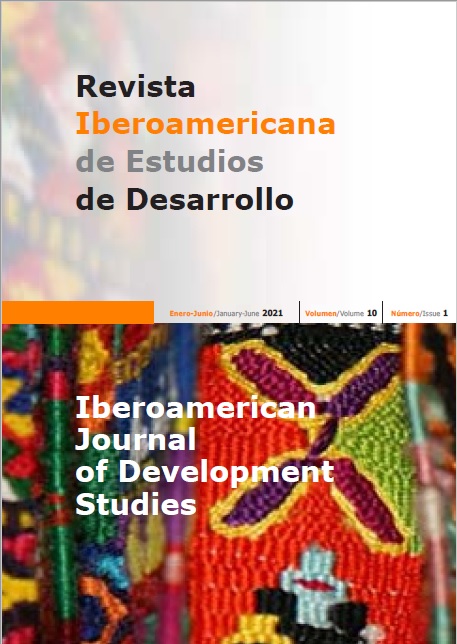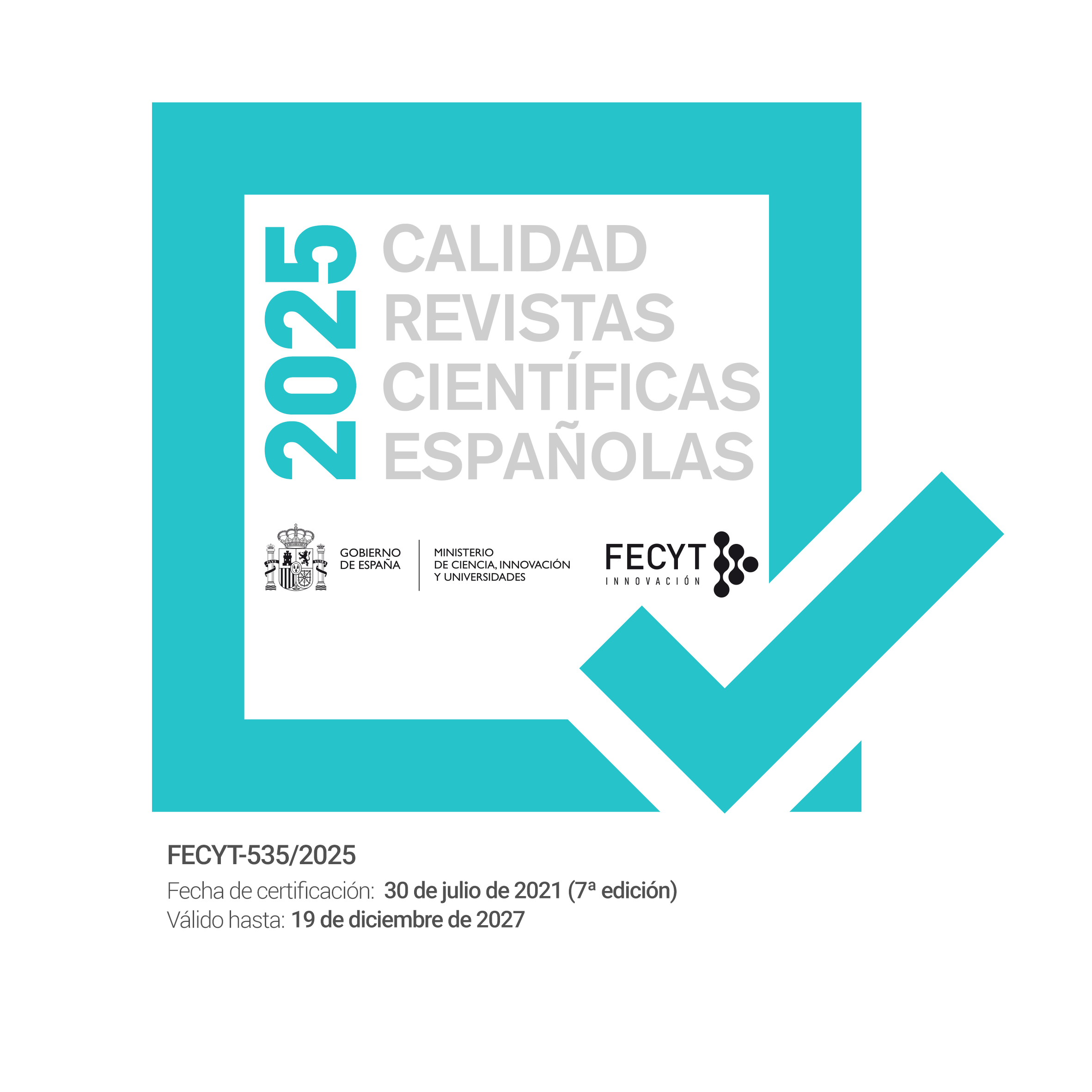Rurality from the perspective of its inhabitants: Analyzing participant responses to in-depth questionnaires, photographs and reflections from an ethnographic study in Southern Ecuador
DOI:
https://doi.org/10.26754/ojs_ried/ijds.515Palabras clave:
etnografía, investigación cualitativa, comunidades rurales, relaciones de poder, desarrollo internacional, poscolonialismoResumen
Como parte de un estudio etnográfico reciente, examinamos las narrativas, fotografías y reflexiones producidas por participantes de cuatro comunidades rurales dentro del distrito de Gonzanamá, provincia de Loja, en el sur de Ecuador, sobre las ventajas y desventajas de la vida rural. En el estudio, se analiza cómo tales comunidades rurales han desarrollado una voz disidente a partir de las relaciones de poder establecidas por la sociedad, el Gobierno y la comunidad científica.
Los resultados han revelado cómo este proceso de tres partes fue una herramienta poderosa para dotar de voz a aquellos que no la tienen; para reclamar sus espacios rurales, que definen quiénes son como comunidad, y para establecer cómo vivir de manera fiel a su patrimonio cultural.
Además, dichos resultados han confirmado la contribución que los estudios cualitativos hacen en el avance de cualquier tipo de estudio cuantitativo, especialmente en el área de desarrollo internacional.
Descargas
Referencias
BERNARD HR (1988). Research Methods in Cultural Anthropology. Sage, Newbury Park, California.
BOURDIEU P (1994). Language and Symbolic Power. Polity Press, Oxford.
CÉSAIRE A (2000). Discourse on Colonialism. Monthly Review Press, New York.
CLOSE H (2007). The use of photography as a qualitative research tool. Nurse Researcher 15(1):27-36.
COLLIER M (2002). Approaches to analysis in visual anthropology. In: Van Leeuwen T, Jewitt C (eds). Handbook of Visual Analysis. Sage, Thousand Oaks (California), pp. 35-60.
CRESWELL JW, HANSON WE, CLARK PLANO VL, MORALES A (2007). Qualitative research designs: Selection and implementation. The Counseling Psychologist 35(2):236-264.
DARBYSHIRE P, MACDOUGALL C, SCHILLER W (2005). Multiple methods in qualitative research with children: More insight or just more? Qualitative Research 5:417-435.
DAVIES N, CROWE M, WHITEHEAD L (2016). Establishing routines to cope with the loneliness associated with widowhood: a narrative analysis. Journal of Psychiatric and Mental Health Nursing 23:532-539.
DOWDALL GW, GOLDEN J (1989). Photographs as data: An analysis of images from a mental hospital. Qualitative Sociology 12:183-213.
DICICCO-BLOOM B, CRABTREE BF (2006). The qualitative research interview. Medical Education 40:314-321.
ESCOBAR A (2009). El post-desarrollo como concepto y práctica social. Revista Española de Desarrollo y Cooperación 24:81-99.
ESCOBAR A (2012). Más allá del desarrollo: Postdesarrollo y transiciones hacia el pluriverso. Revista de Antropología Social 21:23-62.
FANON F (1967). Black Skin, White Masks. Grove Press, New York.
FOSTER-FISHMAN P, NOWELL B, DEACON Z, NIEVAR M, MCCANN P (2005). Using methods that matter: The impact of reflection, dialogue, and voice. American Journal of Community Psychology 36:275-291.
FOUCAULT M (1979). Discipline and Punish. Vintage Books, New York.
GIGLER B-S (2015). Development as Freedom in a Digital Age: Experiences of the Rural Poor in Bolivia. International Bank for Reconstruction and Development/The World Bank, Washington DC.
GÓMEZ-QUINTERO JD, FRANCO-MARTÍNEZ JA (2014). Stigma of poverty. The discursive construction of «South» term in Latin American countries. Iberoamerican Journal of Development Studies 3(1):84-102.
GROSFOGUEL R (2011) Decolonizing post-colonial studies and paradigms of political-economy: Transmodernity, decolonial thinking and global coloniality. Transmodernity 1(1):1-38.
HARPER D (1998). An argument for visual sociology. In: Prosser J (ed.). Image Based Research: A Sourcebook for Qualitative Researches. Falmer Press, London, pp. 24-41.
HARRISON B (2002). Photographic visions and narrative inquiry. Narrative Inquiry 12:87-111.
HEALY K (2004). Towards an Andean rural development paradigm? NACLA Report on the Americas 38(3):28-33.
HOTEZ PJ, BOTTAZZI ME, FRANCO-PAREDES C, AULT SK, PERIAGO MR (2008). The neglected tropical diseases of Latin America and the Caribbean: A review of disease burden and distribution and a roadmap for control and elimination. PLOS Neglected Tropical Diseases 2:e300.
MARX K (1970). Capital: A Critical Analysis of Capitalist Production. Penguin, London.
MCINTYRE A (2003). Through the eyes of women: Photovoice and participatory research as tools for re-imagining place. Gender, Place and Culture 10:47-66.
MIGNOLO W (2002). The geopolitics of knowledge and the colonial difference. South Atlantic Quarterly 101(1):57-96.
MIGNOLO W (2008). La opción de-colonial: desprendimiento y apertura. Un manifiesto y un caso. Tabula Rasa: Revista de Humanidades 8:243-281.
MIGNOLO W (2011a). Epistemic disobedience and the decolonial option: A Manifesto. Transmodernity 1(2):45-66.
MIGNOLO W (2011b). The Darker Side of Western Modernity: Global Futures, Decolonial Options. Duke University Press, Durham (North Carolina).
NOWELL BL, BERKOWITZ SL, DEACON Z, FOSTER-FISHMAN P (2006). Revealing the cues within community places: Stories of identity, history, and possibility. American Journal of Community Psychology 37:29-46.
OLIFFE JL, BOTTORFF JL, KELLY M, HALPIN M (2008). Analyzing participant produced photographs from an ethnographic study of fatherhood and smoking. Research in Nursing and Health 31:529-539.
PINK S (2001). Doing visual ethnography. Sage, Thousand Oaks (California).
PROSSER J (ed.) (1998). Image Based Research: A Sourcebook for Qualitative Researches. Falmer Press, London.
SAMARARATNE D, SOLDATIC K (2014). Rural disabled women’s social inclusion in post-armed Sri Lanka. University of New South Wales (UNSW) Australia and Social Scientists’ Association, Sri Lanka.
VAN LEEUWEN T, JEWITT C (eds.) (2002). Handbook of visual analysis. Sage, Thousand Oaks (California).
WANG C, BURRIS M (1997). Photovoice: Concept, methodology, and use for participatory needs assessment. Health Education and Behaviour 24:369-387.
WEBER M (1958). The Protestant Ethic and the Spirit of Capitalism. Charles Scribner’s Sons, New York.
Descargas
Publicado
Número
Sección
Licencia
Derechos de autor 2021 Emilia Alonso-Marks, Iván Salazar-Tornez

Esta obra está bajo una licencia internacional Creative Commons Atribución-NoComercial-SinDerivadas 4.0.



